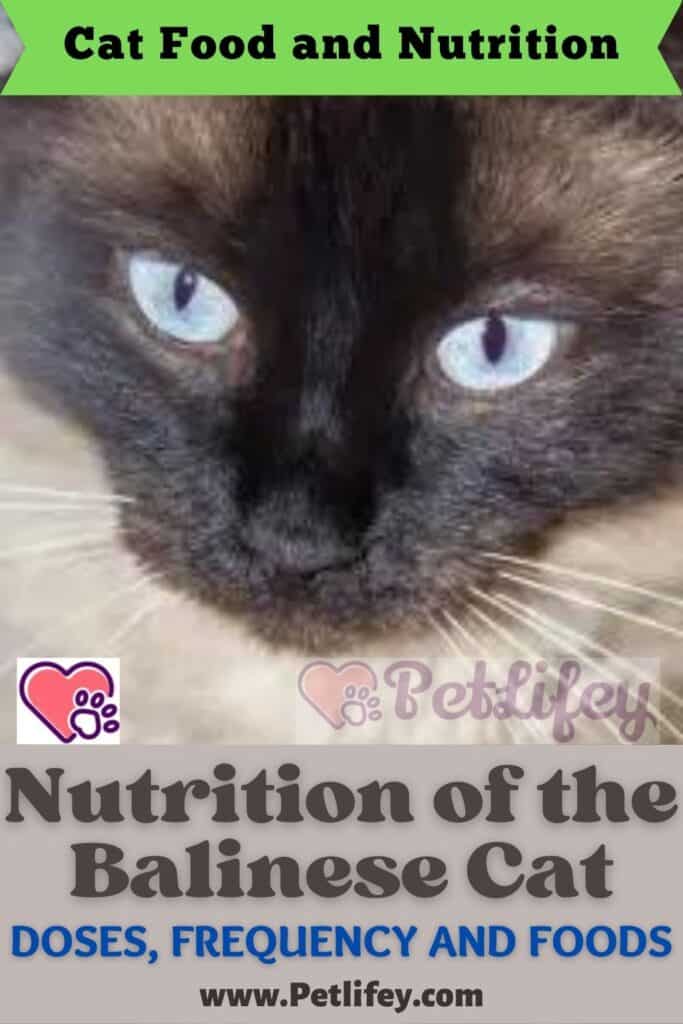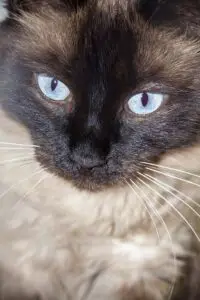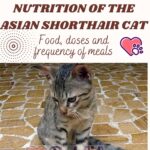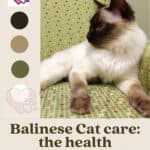
Nutrition of the Balinese cat, how to take care and keep fit with adequate nutrition, this wonderful cat breed.
The choice to adopt a pet involves a series of commitments and responsibilities, so if you decide to do it you need love and a lot of patience.
Very often, in fact, one falls into the error of opting for the cat, as it is assumed that it takes up less time and requires less care. Above all, there are many who make the mistake of thinking that cats all eat the same things.
An observation that is not entirely correct as each breed has different needs.
Therefore, when deciding to adopt a Balinese cat it is important to inquire about the specific needs, regarding the nutrition of the Balinese cat.
What to feed the Balinese cat
In today’s article we will go to see everything concerning the feeding of the Balinese cat, that is the frequency of meals and the quantities necessary for the daily requirement of this breed.
In common to all other cats, the Balinese cat’s diet certainly has the presence mainly of proteins of animal origin, partly also vegetable proteins and followed by carbohydrates and fats.
For this reason, in order of importance, it is advisable to provide the cat with a meal that contains the following nutritional values:
- proteins: animal proteins for cats make up the bulk of the diet (for adult animals – at least 26%, for kittens – at least 30%);
- fats – the amount of fat in the feed does not exceed 10%;
- carbohydrates: they are an immediate source of energy;
- minerals: they are essential for the development and maintenance of tissues;
- vitamins for cats: they are useful to keep the immune system strong and healthy. However, it is necessary to use it appropriately, perhaps by contacting the veterinarian.
All this, translated into food, means giving your Balinese cat the following products, with which to prepare delicious recipes:
- lean meat (chicken, turkey, beef);
- fish (salmon, tuna, trout, mackerel);
- offal (liver, lungs, heart, stomach, etc.);
- fermented milk products, probiotics;
- fresh fruit and vegetables;
- vitamin and mineral supplements (including fatty acids which have a beneficial effect on the cat’s skin).
In any case, the cat food that is normally found in specialized stores are formulas designed both to satisfy the taste of animals and to contain the properties useful for their health.
In fact, these products contain amino acids such as arginine and taurine for the cat that the feline would not be able to produce naturally.
Nutrition of the Balinese cat: doses and frequency of meals.

As we have previously mentioned, since not all cats are the same but of different builds, with a different lifestyle from each other, they need different quantities of food.
This is why every breed needs unequal doses and frequency of meals.
It is therefore necessary to diversify on the basis of very important factors, such as:
- lifestyle (lazy / athletic);
- health conditions of the cat;
- age (young / old);
- gender (male / female).
This is why the Balinese cat being a long-limbed cat, agile but at the same time ravenous, it is necessary to know how to dose the quantity of food well.
As for the kitten, the amount of milk depends on the weight: 25-30 ml of milk per day will be enough for a puppy of 100 grams.
However, when it begins to gain weight, the amount of milk will also gradually increase (at least 5 ml per day).
The milk can be administered with a bottle (there are several on the market) or with a syringe obviously without the needle.
From the fourth week of life and up to the eighth week (the weaning period of the kitten), a minimum quantity of wet food and kibble can be added to the milk, sold in specialized shops.
In the case of the adult Balinese cat, it is necessary to avoid weighing it down so it is necessary to administer between 100 and 200 mg of food per day to be distributed in two meals in the morning and in the evening or in many small meals to be administered during the day.
We always remember that the vet is the only person who can give us the most useful advice even in terms of meals and diet for our little furry dog.






